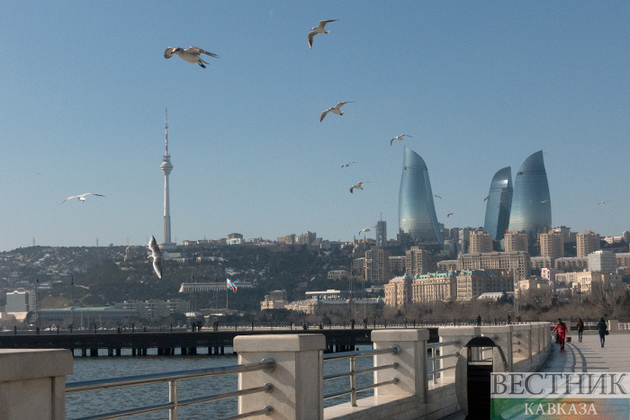When Israeli Prime Minister Naftali Bennett offered condolences to Abu Dhabi Crown Prince Mohammed bin Zayed Al Nahyan after the recent attack on the UAE by Iran-backed rebels in Yemen, it served as the latest reminder that the Middle East as we know it has transformed, The Jerusalem Post writes.
In fact, Israel’s landmark normalization agreements with Arab states extend far beyond statements from one government to another. Whether it be through high-level business collaborations or emerging people-to-people relationships, the Abraham Accords have powerfully displayed the value of giving peace a chance.
Now, Turkey is showing signs of re-entering the fray in the movement toward peace with Israel. Turkish President Recep Tayyip Erdogan said last week that President Isaac Herzog is expected to visit Turkey next month, while noting that Bennett “also has a positive approach” to ties between Jerusalem and Ankara. Erdogan also raised the possibility of an Israel-Turkey energy deal. Two days after Erdogan’s comments, Foreign Minister Yair Lapid received a phone call from his Turkish counterpart, Mevlut Cavusoglu, who checked in with Lapid regarding the Israeli official’s recovery from coronavirus.
Further, Erdogan held a surprise meeting in late December with leaders from the Alliance of Rabbis in Islamic States, reportedly telling the rabbis that Turkey is “ready to develop our cooperation and to better utilize our high potential” and calling antisemitism “a crime against humanity.” These comments are particularly notable when considering Erdogan’s harsh criticism of Israel and at times antisemitic rhetoric since the 2010 Gaza flotilla incident, which triggered the deterioration of Israel-Turkey ties.
Despite reaching a reconciliation agreement in 2016, Jerusalem and Ankara have failed to forge a warm peace that resembles Israel’s nascent relations with the UAE, Bahrain, Sudan and Morocco. Each escalation in Gaza, most recently the 11-day conflict in May 2021, accentuates Israel-Turkey tension and seemingly takes the countries back to square one on rapprochement efforts.
As such, Israel reportedly remains suspicious of mending fences with Turkey – a sentiment that is reinforced by media commentators who dismiss Erdogan’s “charm offensive” and deem the prospects for peace as slim to none. Some degree of skepticism is understandable. Yet the shifting dynamics in the Middle East beg the question: Why not give peace a chance?
The muslim-majority South Caucasus nation of Azerbaijan – whose close cooperation with Israel dates back to 1992, long preceding the Abraham Accords – could play a key role in facilitating an Israel-Turkey agreement. As a rare country which has strong relations with both Turkey and Israel, Azerbaijan has illustrated its potential to create a comfortable environment for a diverse set of players in the peace process.
In April 2021, Azerbaijani President Ilham Aliyev’s foreign policy adviser Hikmet Hajiyev expressed that Baku is prepared to host a trilateral summit with Turkey and Israel, stating, “Turkey is a sister country of Azerbaijan and Israel is our strategic partner. We want our friends to be friends with each other. If the sides agree to such an initiative, then Azerbaijan will always welcome them.” Hajiyev added that Azerbaijan believes Israel and Turkey “share similar interests. We believe that cooperation between them also serves these interests. Azerbaijan does everything it can to improve this relationship.”
These sentiments stem from Azerbaijani leaders’ understanding of the multifaceted benefits of a warm peace with Israel. But rather than an exclusively transactional relationship in which Baku provides oil and Jerusalem provides arms, these ties go much deeper and mirror the wide-ranging impact of today’s Abraham Accords.
“Azerbaijan is the home to a Jewish community that believes it dates back 2,500 years,” American Jewish Committee CEO David Harris said when representatives of his organization visited Azerbaijan this month. “I’ve met many Jews from Azerbaijan over the years both here in Baku, as well as in Israel, the US, and elsewhere, and what they share in common is a pride in their connection to Azerbaijan, a recognition in this Shi’a Muslim-majority country they have lived freely as Jews, and in brotherhood and sisterhood they say with other residents of this country.”
Jews have lived in Turkey, too, for more than 2,000 years. And despite their diplomatic tensions in recent years, Jerusalem and Ankara have maintained a strong economic relationship, with Turkish exports to Israel reaching an all-time monthly high of $595 million in November 2021. The foundation exists for a warm peace between Israel and Turkey, and the Abraham Accords have shown that the process could be well worth the investment. By giving peace with Turkey a chance, Israel and its supporters would be casting a vote of confidence in the region’s ongoing transformation.
Azerbaijan may play key role in Turkey-Israel normalization

9020 views





